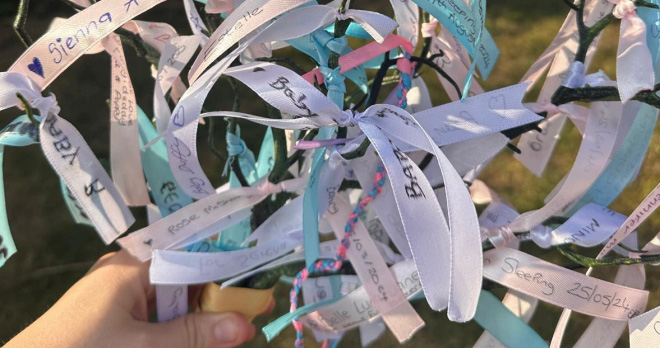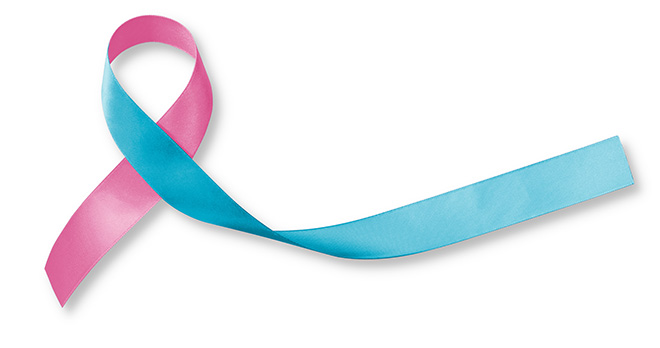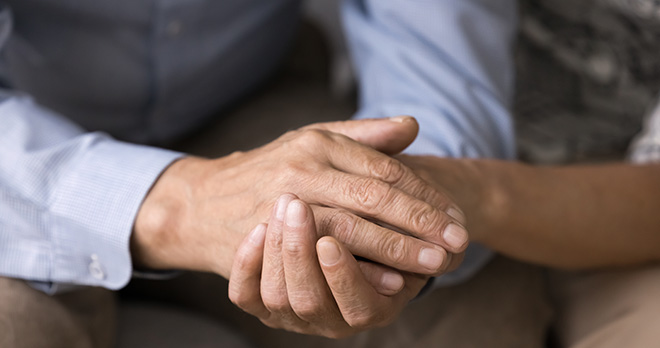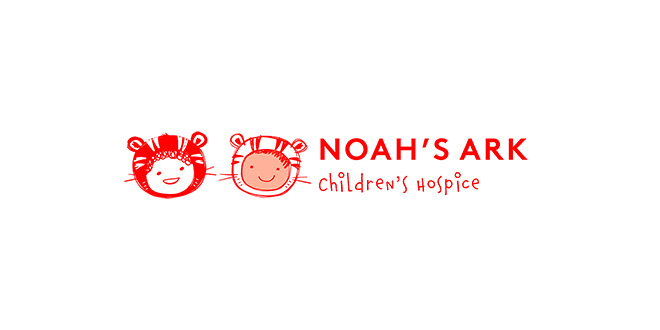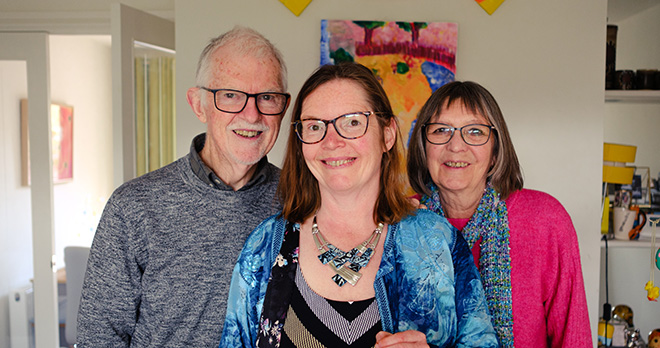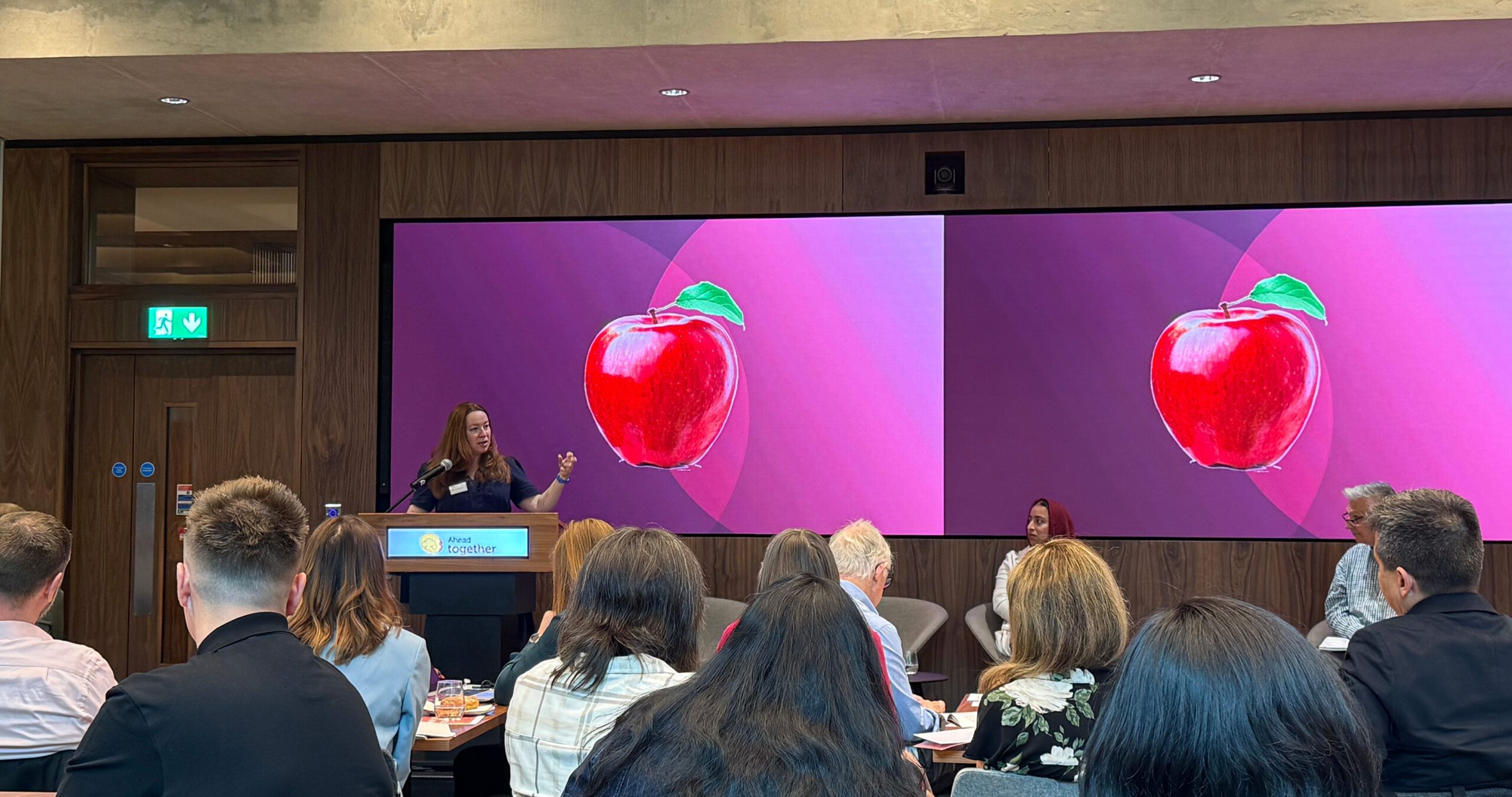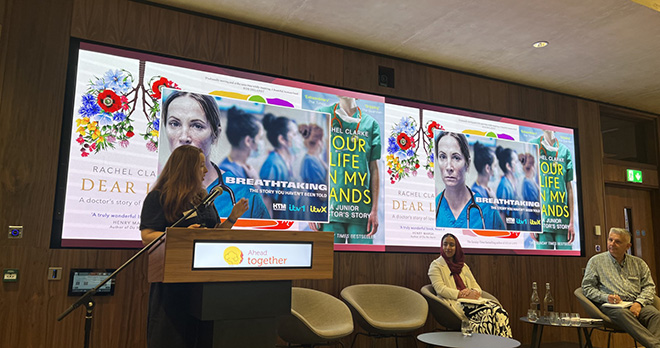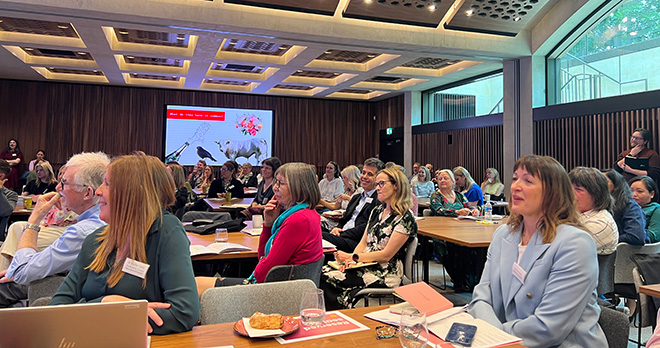Family harmony after birth injury: the sound of hope
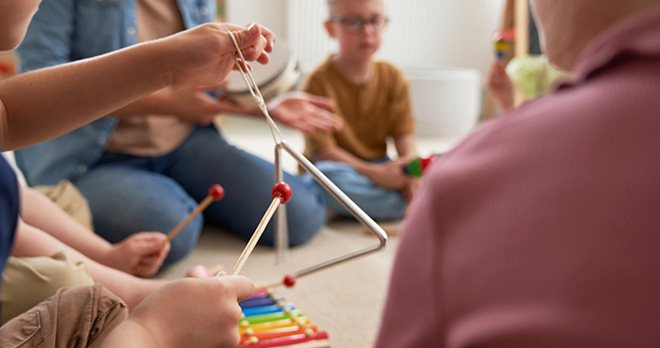
Written by Elizabeth Nightingale, Neurologic Music Therapy® Fellow affiliate of the NMT™ Academy and an accredited Expert Witness.
Earlier this year, social enterprise Chiltern Music Therapy was a sponsor of RWK Goodman’s Ahead Together conference, championing the theme of Families After Brain Injury: Reclaiming Hope. Neurologic Music Therapy® (NMT™) embodies this message by helping individuals and families reconnect through music, not just regaining function, but rediscovering joy, identity, and purpose. The following article highlights how NMT™ bring emotional and practical hope into the heart of family life.
Introducing Neurologic Music Therapy
Families living with the effects of acquired brain injury (ABI) understand that recovery is about more than physical rehabilitation. Restoring identity, reconnecting with loved ones, and regaining the small but essential abilities that underpin everyday life become of equal if not greater value. Amid this complex and emotional journey, one clinical intervention helping to transform lives through the power of music, is Neurologic Music Therapy® (NMT™).
NMT™ is a system of 20 standardised music-based techniques. The evidence-based intervention uses these techniques to train or retrain brain and behaviour function across speech and language, cognition, motor skills, and psychosocial domains.
NMT™ interventions are designed to either develop function for the first time, rehabilitate lost function, or to help maintain function for as long as possible. Grounded in neuroscience and recognised by the World Federation of Neurorehabilitation, NMT™ is a valuable treatment intervention for both children and adults with a wide range of neurological conditions.
Supporting the whole person
As long as a client is medically stable, Neurologic Music Therapy® can be delivered across the rehab pathway, from acute care to inpatient rehabilitation and the community. Timely access can help to optimise gains, though for many families navigating the medicolegal process, access often begins once their loved ones are back home, providing a valuable opportunity to embed therapy goals into daily life.
Take Susie, a young girl living with cerebral palsy, cortical visual impairment, and drug-resistant epilepsy. Despite complex needs and communication challenges, Susie thrived during her NMT™ assessment, where she participated in structured activities using switches, musical cues, and tactile prompts. In just a few sessions, she demonstrated the ability to make consistent choices between activities, follow multi-step instructions, and even complete entire song phrases using her voice and assistive technology. Her sessions revealed not just functional potential, but a playful, curious personality previously hidden by the limitations of her condition.
Susie’s therapy included opportunities to influence her environment, for example, using a “Go” switch to cue music or initiate movement in her wheelchair. Over time, her family saw clear signs of increased autonomy, purposefulness, and joy. These were tangible steps towards a more empowered and connected life.
Music that builds function and family bonds
In another paediatric case, Adrian, a five-year-old boy with dystonic quadriplegic cerebral palsy, demonstrated significant progress in attention, turn-taking, and emotional expression over the course of 12 months of NMT™. His therapy included vocal exercises to develop his voice, rhythmic activities to increase range of motion, and assisted play to support social development. These enabled his mum, siblings, support workers, and visiting grandmother, to be actively involved. These shared experiences became powerful moments of connection, where he was not just a passive recipient of care but an expressive, engaged participant in family life.
The NMT™ speech and language technique, Developmental Speech and Language Training through Music (DSLM)®, was used to reinforce school-based vocabulary in a highly engaging and structured way. Using melodies with repetitive musical phrasing, target words were embedded into original songs that supported his expressive communication and recall. Visual cues, gestures, and AAC were integrated alongside the music, helping Adrian anticipate and participate in key words through vocalisation or switch activation. This multi-sensory approach not only reinforced vocabulary from his school curriculum but also strengthened his confidence, attention, and ability to generalise language across settings.
Adrian’s motivation and self-esteem blossomed when given opportunities to try new things, succeed independently, and be recognised for his achievements. Music, in this context, was not just a tool, it was a bridge to confidence, agency, and delight.
The role of case managers and legal professionals
The role of case managers and legal professionals in facilitating access to early rehabilitation services is crucial. NMT™ is most effective when delivered in the early stages of recovery or when developmental delays are first observed. It can also provide long-term value in progressive conditions, helping to slow deterioration and preserve function.
In medicolegal contexts, referrals to NMT™ should be considered alongside ‘traditional’ therapies such as physiotherapy, speech and language therapy, and occupational therapy. Importantly, NMT™ is designed to complement these interventions, often working in joint sessions to ensure goals are consistent, relevant, and meaningful across disciplines.
NMT’s flexibility also makes it uniquely suited to home-based, family-centred models of care. Parents and support workers are trained to use musical tools and techniques outside of therapy time, extending therapeutic benefits and fostering active participation from the wider support network.
Optimising outcomes, one note at a time
A brain injury can change everything, but within that change is the opportunity to rebuild, reconnect, and rediscover identity. Whether supporting a toddler to speak their first words or helping an adult reconnect with loved ones through familiar song, Neurologic Music Therapy® makes recovery not just functional, but profoundly human.
If you would like to discuss making a potential claim for a brain injury suffered by yourself, or someone else, please contact our specialist brain injury team and we can assess your claim.
Call now
More insights from our brain injury experts.
View more articles related to Brain Injury and Team Around the Client
